During round
Listado top ventas during round
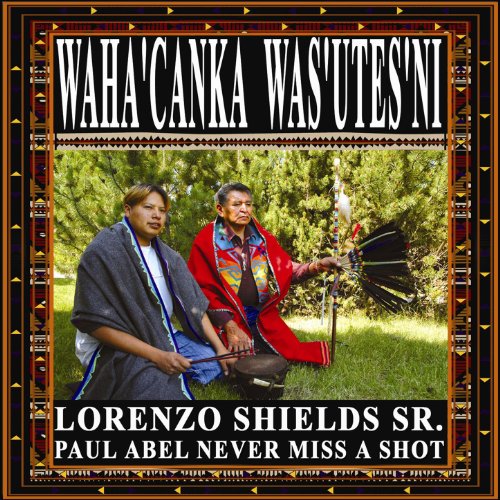
MORNING SONG-SUNG DURING LAST ROUND - PRAYER SONG-FATHER GOD, HAVE PITY, FORGIVE ME FOR MY SINS - PRAYER SONG-FATHER GOD, SACRED HOLY PEYOTE, HAVE PITY ON ME - STRAIGHT SONG
Ver precios en Amazon
![Observations Made during a Voyage round the World Paperback (Cambridge Library Collection - Maritime Exploration) [Idioma Inglés]: On Physical Geography, Natural History, and Ethnic Philosophy Observations Made during a Voyage round the World Paperback (Cambridge Library Collection - Maritime Exploration) [Idioma Inglés]: On Physical Geography, Natural History, and Ethnic Philosophy](/pics/2021/02/20/observations-made-during-a-voyage-round-the-world-paperback-cambridge-library-collection-maritime-exploration-idioma-ingles-on-physical-geograp-779183.jpg)
OBSERVATIONS MADE DURING A VOYAGE ROUND THE WORLD PAPERBACK (CAMBRIDGE LIBRARY COLLECTION - MARITIME EXPLORATION) [IDIOMA INGLÉS]: ON PHYSICAL GEOGRAPHY, NATURAL HISTORY, AND ETHNIC PHILOSOPHY
Ver precios en Amazon
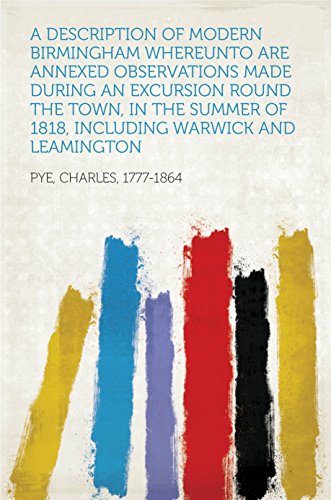
A DESCRIPTION OF MODERN BIRMINGHAM WHEREUNTO ARE ANNEXED OBSERVATIONS MADE DURING AN EXCURSION ROUND THE TOWN, IN THE SUMMER OF 1818, INCLUDING WARWICK AND LEAMINGTON (ENGLISH EDITION)
Ver precios en Amazon

MADRID, SPAIN, BULLFIGHT, GENERAL AMBIENCE DURING ROUND, LIGHT TO MEDIUM CHEERING, WHISTLING
Ver precios en Amazon
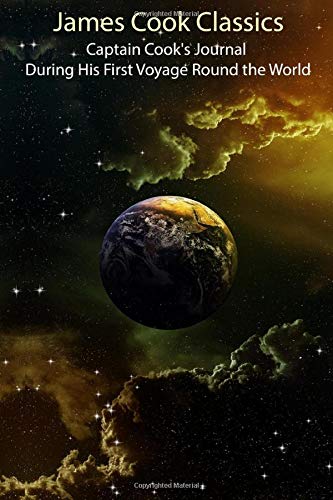
JAMES COOK CLASSICS: CAPTAIN COOK'S JOURNAL DURING HIS FIRST VOYAGE ROUND THE WORLD: ILLUSTRATED
Ver precios en Amazon

CAPTAIN COOK'S JOURNAL DURING THE FIRST VOYAGE ROUND THE WORLD : ORIGINAL (ANNOTATED) (ENGLISH EDITION)
Ver precios en Amazon

MADRID, SPAIN, BULLFIGHT, GENERAL AMBIENCE DURING ROUND, LIGHT TO MEDIUM APPLAUSE, SOME CHEERING
Ver precios en Amazon
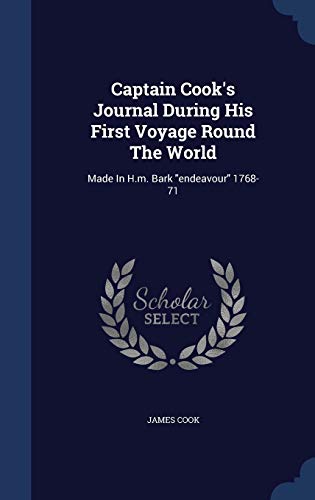
CAPTAIN COOK'S JOURNAL DURING HIS FIRST VOYAGE ROUND THE WORLD: MADE IN H.M. BARK "ENDEAVOUR" 1768-71
Ver precios en Amazon
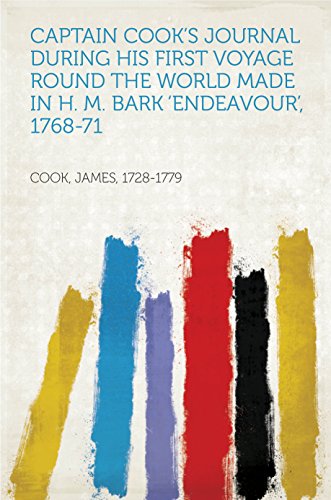
CAPTAIN COOK'S JOURNAL DURING HIS FIRST VOYAGE ROUND THE WORLD MADE IN H. M. BARK 'ENDEAVOUR', 1768-71 (ENGLISH EDITION)
Ver precios en Amazon

MADRID, SPAIN, BULLFIGHT, GENERAL AMBIENCE DURING ROUND, "OLÉ", APPLAUSE AND CHEERING, BRASS NOTES
Ver precios en Amazon

España
Pioneer Days Pioneer Days is a dice-drafting game reminiscent of The Oregon Trail. While you pursue your strategy, you must be prepared for impending disasters such as storms, disease, raids, and famine. Round by round, players draw dice out of the bag, roll them, then take turns drafting one to either collect silver, hire a townsfolk, or take an action based on the die value. Townsfolk confer immediate or constant benefits as well as end game scoring bonuses, while actions help you collect wood, medicine, cattle, equipment, and gold nuggets. The unchosen die each round advances one of the disaster tracks based on its color, and when a disaster gets to the end of its track, all players must deal with its effects: During a raid, you lose half of your silver. During a famine, you need to spend 1 silver per cattle or lose the cattle. During a disease, you need 1 medicine per townsfolk or lose the townsfolk. During a storm, you need 1 wood per wagon or suffer damage to your wagons. At the end of each round, you can satisfy the current town's favor conditions in order to earn their favor. Prepare for the disasters while you pursue your strategy, and earn the most points to win the game! Contents: 2 Draw Bags 36 Gold Tokens 25 Dice 2 Game Boards 4 Score Boards 4 Disaster Markers 20 Wagon Cards 60 Townsfolk Cards 18 Town Cards 8 Player Boards 27 Equipment Tiles 1 Start Player Marker
50,95 €
Ver producto
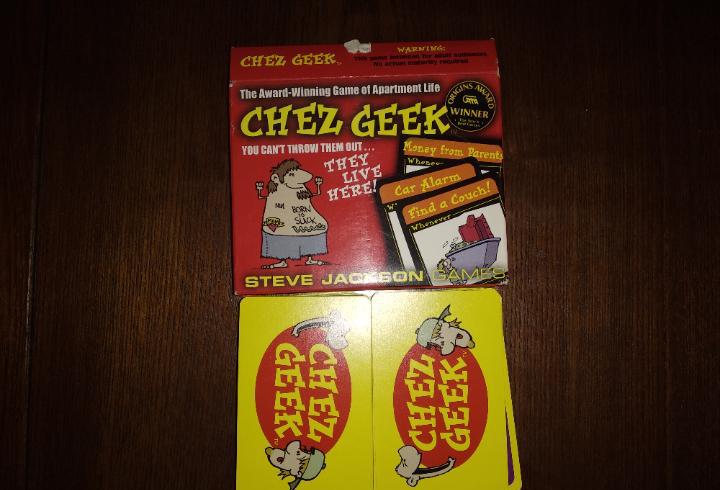
Madrid (Madrid)
Chez Geek (english edition) Chez Geek (english edition) In this light, humorous, and fast-paced card game that parodies geek culture and co-habitation, players are roommates just trying to get through life with as little work as possible. At setup each player is dealt a Job card which lists their free time, income, a special ability that they possess and their Slack goal. Players are also dealt five Life cards. The space directly in front of a player is their Room, where cards will be played during the course of the game. Slack can be represented using any available chit or counter, but every player begins with a Slack total of zero. Players take turns as follows: -Draw Life cards until they have six in hand. (NOTE: Some Jobs vary this to five or seven cards.) -Make "variable" rolls. Some Job cards have variable free time or income; their values for this turn are decided in this phase (rolling a 1-3 gives them the first amount; rolling a 4-6 gives them the second). If there are any "uninvited" people in a player's room, he or she may also roll to "get rid of" them (by rolling a 4, 5 or 6) and either send each such person to another room or discard them (if they cannot be played to any other room). -If any of the player's in-hand Life cards are green Person cards, they may roll to "call" the person to their room. A successful roll (3-6) gets them invited in; otherwise, they are discarded. Some people are "uninvited" (causing bad things to happen), and may be placed without a roll in any player's room. (See above for "getting rid of" these people.) Pet cards, such as Cats (which don't require a roll to enter a room) and Dogs (which may or may not need to be "called") can also be played in this round. -For each unit of free time the player's Job card gives them, they may perform one action (play a red Activity card) or go shopping (play any number of blue Thing cards). Some of these cards may have a cost; the total cost for all cards played in a round cannot exceed the income given to them by their Job card. (NOTE: Free Time and Income may be modified by certain Whenever cards played on the player by themselves or other players.) -At the end of a turn, if a player has more than five cards in hand, the player must discard cards until they have five or fewer. If desired, players can discard all the way down to one card. (NOTE: It is also legal for a player to play ALL the cards in their hand and have NO cards at the end of a turn.) -Additionally, some Life cards are orange "Whenever" cards which can be played at any time. -Activity cards and Thing cards typically list a Slack value which is added to the player's Slack total, though some have random Slack totals and some have Slack totals which vary during the game. TV Activity cards and some Whenever cards can be used to cancel cards as they are being played, and some cause previously-played cards to be discarded. Some cards add or subtract Slack from every player's total, while others cause a player to change their Job card (and hence Slack goal). Many cards alter the effects of other cards. The first player whose Slack total equals or exceeds their Slack goal is the winner.
Ver producto

España
Nations - The Dice Game (Multilenguaje) Incluye Castellano Nations: The Dice Game is a game for 1-4 players that takes 10-15 minutes per player and shares many concepts with the civilization-building game Nations while still offering its own challenges. The game is played over four ages (four rounds). During each round, players take turns until all have passed. The available actions are: Buy a tile Build a wonder Reroll some or all your dice Buildings and military provide dice. Colonies and wonders provide resources and victory points. Advisors provide rerolls. New tiles provide benefits immediately, so you can roll new dice at once. At the end of each round, War and Famine drawn at the start of the round is checked for each player, giving you victory points if you match or beat the values. Books are accumulated and scored. Player order is checked, with high military strength going first in the next round. At the end of the game, whoever has the most victory points wins. BGG - 157809 Muchas gracias a todos los que hacéis posible con vuestro esfuerzo y dedicación la difusión de los juegos de mesa.
28,89 €
Ver producto

España (Todas las ciudades)
In The Golden Ages, you lead your civilizations through history. The game lasts four different eras, during which you develop technologies, create fine arts, erect buildings, and build wonders. You'll send explorers to discover the continents, found cities in distant lands, and send your soldiers into battles. The game lasts four rounds ("Eras"), during which the players: - show/discard the civilization that they will play during the Era; - discover new continents placing tiles on the map; - take turns doing actions (explore/found a city, erect a building, make arts, build a wonder, develop a techology, activate a building/wonder, attack another player, start a Golden Age). The first player starting a Golden Age during an Era choose an "History Judgement" card that states the way all the players will score in that round. Each player who started a Golden Age continues taking money at his turns until all other players have passed. There are many ways to score points (artists, history judgement, wonders, technologies, attacks, money, secret future technologies, etc.), and then also many different ways to achieve a victory. Will you succeed in evolving your civilization through history, overwhelming your opponents on the way to glory?
35,95 €
Ver producto

España
Riverboat The Upper Midwest, 1800s: It is a hard life farming along the Upper Mississippi, but it is an era of innovation and expansion, and you are able to not only increase the size and variety of your crops, but also able to claim contracts farther and farther down the Mississippi River. You can even hire factors who will work in New Orleans to sell your goods and advise you on business opportunities. Careful use of your workers, gaining the favor of the harbor master, claiming opportunities when they arise, and keeping a close eye on your competitors will help you build an empire along the mighty Mississippi! Riverboat is a strategy game by Michael Kiesling for two to four players. The game is played over four rounds with five phases each. Each round, the players distribute workers on their farms, growing crops where they place them. Sets of crops of the same type are shipped via riverboats for points, money and other benefits. At the end of each round, players score certain features of their farms, provided they have so-called foremen to do so. Players can send part of their very limited supply of workers away to become factors for additional points every round. Completing certain areas of your farm by planting crops there, having a lot of factors, and gaining the favor of the harbor master are crucial to getting a lot of points during the final scoring. Muchas gracias a todos los que hacéis posible con vuestro esfuerzo y dedicación la difusión de los juegos de mesa.
38,25 €
Ver producto

España
Fort Sumter The game pits a Unionist versus a Secessionist player. Each player uses the area control mechanic pioneered in Mark Herman's We The People design and immortalized in Twilight Struggle to place, move, and remove political capital. The location of political capital determines who controls each of the four crisis dimensions (Political, Secession, Public Opinion, and Armaments). After three rounds of play, the game culminates in a Final Crisis confrontation to determine the winner. The heart of the Fort Sumter design is Mark's CDG system where you use Strategy cards for their value or historic event to acquire political capital from the crisis track. Political capital tokens are used to compete for control of the twelve map spaces. Here the likes of William Lloyd Garrison, Sam Houston, Jefferson Davis, and Harriet Beecher Stowe walk on stage, while the Southern states dissolve the Union. The twelve map spaces are grouped into the four dimensions of the crisis. You gain a victory point each round that you control a dimension's three spaces. For example, the Armaments dimension is characterized by Federal Arsenals, Fort Pickens, and of course, Fort Sumter. In addition, each round you score a victory point for controlling your secret objective space. But beware; either player can score active objective spaces. At the end of the dual Presidential inaugurations (round three) a new Final Crisis mechanic drives the game to its hotly contested conclusion. Utilizing a new Final Crisis Series mechanic, you may accelerate the crisis by breaching zones (escalation, tension, final crisis) that yield bonus political capital. However, beware, as the first person to breach the final crisis zone gains political advantage, yet loses victory point ground. Each game ends with a Final Crisis, where cards set-aside during the three rounds complete your final political maneuvers that determine the winner.
35,70 €
Ver producto

España
Joraku Specifically, during the Sengoku period, Joraku refers to the act of local warlords-the Daimyo marching their armies toward Kyoto, to "protect the Shogun and Emperor from other rogue lords" and ultimately rule in their place. Onward to Kyoto! Take command of your army, and defeat every Daimyo blocking the way! March on! To victory! March on! Kachidoki! Joraku is a trick-taking area control game. Outwit your opponents with tactical card play, use your loyal Samurais to bid control of areas and build prestige. Only the Daimyo with the highest reputation and the biggest stick can rule Japan! Round Overview Recruit Phase Draw new hand of 5(6) skirmish cards in a 4(3) player game. Pass 2 cards to the left simultaneously. Skirmish Phase Each player plays 1 card and resolves it. Check who wins this skirmish. Pass the Kachidoki card to winner. All players rank influence where the winner's Daimyo token is to gain RP. Repeat 1~3 until all cards in hand are played. Prestige Phase: Rank influence of players in each area, earn Reputation Points based on the score charts on the map. The game lasts for 3 rounds, and the player with the highest RP wins. The points given in each area will be different for every round. Your Samurai cubes will stay on the map between rounds, so plan for the future when you place them. FUNDAS 57,5x89 (60)
17,95 €
Ver producto

España
Triumph & Tragedy (Second Edition) Triumph & Tragedy is a geopolitical strategy game for 3 players (also playable by 2) covering the competition for European supremacy during the period 1936-45 between Capitalism (the West), Communism (the Soviet Union) and Fascism (the Axis). It has diplomatic, economic, technological and military components, and can be won by gaining economic hegemony or technological supremacy (A-bomb), or by vanquishing a rival militarily. The 22 x 34 area map covers Eurasia to India and the Urals, plus the Americas. Military units are 5/8" blocks, of 7 types (Infantry/Tank/Fortress/AirForce/Carrier/Fleet/Submarine), in 7 different colors (Germany/Italy/Russia/Britain/France/USA/Neutral). The mix of over 200 blocks allows great flexibility of force composition. There is a 55-card Action deck and a 55-card Investment deck, plus 30 Peace Dividend chits and 110 markers of various types. The game starts in 1936, with all 3 Great Powers virtually disarmed: Germany has repudiated the Versailles Peace Treaty, initiating an arms race in Europe. With blocks, the nature of military buildups remain unknown to rivals unless/until military conflict breaks out. The game may end peacefully or there may be war. There are game sanctions for attacking neutral minors or declaring war on an opponent, and rewards for remaining peaceful (you get a Peace Dividend chit of value 0-2 for every year you remain at Peace). You can win peacefully by: • Economic Hegemony (total of Production + secret Peace Dividend values + Atomic Research is the greatest in 1945, or reaches 25 at any time) OR • Technological Supremacy (build the A-bomb which takes 4 stages and be able to deliver it to a Main Capital). If there is war, you can still win by either of the above methods (with extra Economic Hegemony victory points available), or by: • Military Victory (capture TWO enemy capitals out of nine: each player controls three). Economic production underlies all forms of power in the game. Production is the LEAST of controlled Population (cities), controlled Resources, and Industry (which starts low and can be built up with Investment cards), except that Resources can be ignored if at Peace. Powers can spend their current economic Production on either: • Military units (new 1-step units or additional steps on existing units), OR • Action cards, which have Diplomatic values (to gain Population and Resources without conflict) and a Command value (to move military units), OR • Investment cards, which have Technological values (to enhance unit abilities) and a Factory value (the only way to increase Industry levels). Building a unit step or buying a card costs 1 Production. Simple. You can't inspect cards bought until after you have spent all Production. Initially, the Axis economy is Population/Resource limited, but ahead in Industry, while the West and Russia are Industry-limited, with adequate empires of Population and Resources. Throttling/limiting rival economies by denial of Population/Resources is a key form of competition. In peacetime, this is primarily done via Diplomacy, committing Action cards to gain control of minor nations and their Population/Resources, or to deny or reduce Rival control of them. At war, this can be done more directly by military conquest on land, by Naval/Submarine blockade of trade routes at sea, and by Strategic Bombing of enemy Industry by air forces. The early phase of the game tends to revolve around: • Diplomatic infighting (using Action cards), to gain minor nations (Czech, Rumania, etc) for their Population and Resources, and • Industrial buildup (via Investment cards), with • Military buildups (with the nature of forces being built being unknown to opponents), • Technology advancement (also via Investment cards), and some • Military operations (using Action cards for Command), which can include Violating (attacking) neutral minors to gain Population/Resources when Diplomacy fails. If the game continues peacefully due to imposing defenses or player inclination, pressure builds as players approach a Production of 20, as secret Peace Dividend chits may take someone over the 25 Victory threshold. Or players may succeed in developing the Atomic Bomb and steal a victory that way. At some point, however, one Power (seeing opportunity or necessity) may Declare War on another. The victim gets immediate economic benefits in reaction, but military reality comes to the forefront from this point onward. The third party may well continue its economic development in peace. Or not. Unit movement is by Command card, which specifies a Command Priority letter that determines order of movement/combat and a Command Value number that determines the maximum number of units that can be moved. Command cards are only valid during one specified Season (Spring/Summer/Fall), so a variety of Command cards in one's hand is necessary for a Power to be able to move in every Season. But HandSizes are limited, so each player must balance competing demands for card resources with military security. Combat occurs when rival units occupy the same area, and is executed by units firing in order by Type (defenders firing first amongst equal types), rolling dice for hits. Units have different Firepowers (hit values) depending on the Class of unit they are targeting (ground, naval, air, sub). Land combat is one round per Season while sea battles are fought to a conclusion. Ground units without a Supply line lose 1 step per Season and cannot build (except Fortress units which are immune to both effects but cannot move). Triumph & Tragedy is a true three-sided game: there is no requirement that the West and Russia be on the same side (and in fact there are valid reasons to attack each other), and only ONE player can win the game. Table talk is allowed (and encouraged) but agreements are not enforceable. Alliances are shifting and co-operation is undependable. The game can continue as an economic battle of attrition or a sudden military explosion can change everything. There is immense replayability as players can pursue dominance in Europe via land, sea or air military superiority, technological supremacy, or economic hegemony without rivals realizing their strategy until it is TOO LATE! It is a highly interactive, tense, fast-moving game with little downtime between player turns, covering THE crucial geopolitical decade of the 20th century in 4-6 hours. AWARDS & HONORS 2015 Golden Geek Best Wargame Nominee FUNDAS 63,5x88 (120)
84,5 €
Ver producto

España
Orcs Orcs Orcs Orcs Orcs Orcs is a game for two to four players that combines two excellent game mechanics that have not been paired before (deck building and tower defense) and has players casting spells, squashing orcs and rolling up the score in the Orc Squash Tournament. The mages start the game on top of the tower in the middle of the battlefield. The battlefield consists of six lanes, each with three sectors, radiating out from the tower. On these lanes the orcish hordes will try to charge all the way towards the tower. Your job is to defeat them before they can reach you. At the beginning of each game round players draw a fate card, which will determine which category of creatures will advance one sector towards the tower and sometimes implement a nasty rule change for that particular game round. There are three categories of orcs which differ in strength and special abilities that are conveyed to a player once an orc is defeafed. The game ends when on four lanes you run out of orcs. During the final scoring players count up their defeated orcs and multiply them by the number on the creature counter, get points for each support spell learned and subtract points for each poison card in their deck. Whoever has the most points will be declared "Master Mage"! BGG - 165477 Muchas gracias a todos los que hacéis posible con vuestro esfuerzo y dedicación la difusión de los juegos de mesa.
19,95 €
Ver producto

España
Tiny Epic Quest Now you, the heroes, must quest in order to right this wrong. There are two paths to victory: closing the portal or slaying all the goblins. Which one will you choose? Either way, your quests will be aided by the help of the surviving mushroom folk - and by the epic items that have been lost in the realm's deep dungeons. The world is ending quickly, so you must act fast to save it, but you also need to know when your luck will run out... In Tiny Epic Quest, players embark on a sandbox adventure. Each player controls a band of three elf heroes questing to save the world and the sacred mushroom folk from the intruding goblins. Each round is broken into two phases: day and night. During the day, players travel far and wide, visiting villages to acquire quests, monuments to learn powerful spells, mushroom groves to seek guidance, and treacherous locations in search of artifacts! Acquiring artifacts empower the heroes with unique abilities; this may improve a heroes' movement or combat, or their ability to learn spells or mitigate harmful dice rolls. Heroes must travel by foot, by horse, by raft, by boat and by gryphon to get to everywhere they need to go to satisfy their quests - or to position themselves for what night brings. As each type of movement is different, and limited, players need to take careful consideration when traveling, and how they travel, if they wish to accomplish all of their goals. During the night, players must face the challenge of their quests, and decisions, by rolling dice, hoping for fortune, and knowing when to quit. Will you press on? Or is it time to save your progress and rest? Tomorrow is another day. The game ends once the portal is closed or all the goblins have been eradicated. The player who has acquired the most victory points by slaying goblins, learning spells, and completing quests is crowned the winner!
27,62 €
Ver producto

España
Seasons Seasons is a game of cards and dice which takes place in two phases: The first phase consists of a draft: the goal during this phase will be to establish a strategy for the rest of the game with 9 cards that can be selected (Each card has a specific effect and earns victory points). Once the draft is complete, each player must separate his 9 cards into 3 packs of 3 cards. He will begin the second phase of the game with his first pack of three cards, then gradually as the game progresses, he will receive the other two packets of three cards. Next comes the second phase of play: at the beginning of each round a player will roll the seasons dice (dice = number of players +1). These cubes offer a variety of actions to the players: - Increase your invocation (maximum number of cards you may have placed on table) - Harvesting energy (water, earth, fire, air) to pay the cost of invocation maps - Crystallization energy (during the current season) to collect crystals. These serve both as a resource to rely on some cards, but also many victory points in the endgame. - Draw new cards Each player can choose only one die per turn. The first player will choose among those launched, then the following among those remaining and so on. At each turn, the dice indicate how many remaining cells (1, 2 or 3 boxes) the marker of the seasons ahead. In addition, all the dice are different depending on the season. For example, there are not the same energies to a particular season. Throughout the game, players will therefore have to adapt to these changes. At the end of the game, we add the points of victory on the cards, given the number of crystals possessed. The player with the most victory points wins.
34 €
Ver producto

España
The Trial Masters - Wrath of Magmaroth The legend says that in a time of grave danger, masters of the elemental orders will leave their ancestral retreats and join forces to restore peace to the world. From the once-dormant Tekirin volcano, the vengeful Magmaroth has emerged. Born of earth and fire, its goal is to mold the world to its image: primal and ruthless. The time is now for the masters to face their destiny. The Masters' Trials: Wrath of Magmaroth is a cooperative dice-crafting game in which players represent the masters from the orders that have banded together to face the evil elemental. Each player has a board that represents their character and five dice which they use to apply the effects of their abilities. Each round, they face new minions, generate mana, and get to master new abilities, adding them on their characters. After ten rounds, they come face-to-face with the powerful Magmaroth, which they have to defeat before the whole volcano collapses around them. The Masters' Trials uses the dice-crafting mechanism made popular in the game Dice City but in a new and exciting way. Each player's character consists of three different boards that represent their class, order, and weapon. These boards determine their initial abilities as well as the ones that the players can master during the game. By combining them in different ways, you can create new characters, allowing for a different experience in each game! Build your character the best way possible, work together with your fellow players, roll your dice, and use the powerful techniques you have mastered in order to defeat Magmaroth before he destroys everything!
33,99 €
Ver producto

España
Merlin King Arthur is searching for a worthy heir. Together with Merlin he tries to find the best candidate among the Knights of the Round Table. Players move their knights or Merlin with the help of dice around the action ring to get the most desired actions. While the knights are only moved by the corresponding player, Merlin can be moved by all players, which makes integrating Merlin in one's plan a tricky endeavor. There are multiple ways to score victory points such as defeating barbarians, building manors in the surrounding area and increasing one's influence in the 6 counties. Additionally, players can fulfill task cards during their turn to get more victory points. The player who plans his actions most efficiently will ultimately have the most points and thus will be the royal successor of King Arthur. Muchas gracias a todos los que hacéis posible con vuestro esfuerzo y dedicación la difusión de los juegos de mesa.
46,75 €
Ver producto

España
Sunrise City Fecha de Llegada Aproximada - 25-08-2017 In the tile-laying game Sunrise City, players build a city with zone tiles, bid for control of those zones, then place building tiles on the city zones to their best advantage. Each round the players use role cards to grant them special abilities in the various game phases. Points earned during play move score tokens up a ten point track. Players score one benchmark token if their score marker overshoots the star at the top of their score track but earn two benchmarks if their token lands on the star by exact count. Thus, Sunrise City is not a race to score the most points; it's a contest to grow the city in a manner that will earn you the right number of points at the right time to maximize your benchmarks. After three rounds, the player with the most benchmarks wins. Muchas gracias a todos los que hacéis posible con vuestro esfuerzo y dedicación la difusión de los juegos de mesa.
42,45 €
Ver producto

España
Legendary Encounters - A Firefly Deck Building Game For those that have played the previous Legendary Encounters games they will be pretty far along to knowing the rules of this one. One of the biggest differences between Legendary Encounters: A Firefly Deck Building Game and its predecessors are the Avatars. While Avatars have always been present in Legendary Encounters these Avatars are of the main cast of the show: the crew of Serenity. Players will now take on the roles of characters like Mal, Zoe, River, and Simon to try and complete episodes from the Firefly TV show. During setup, players will each select an Avatar. These will be the Main Characters of the game. Each game will have 5 Main Characters and 4 Supporting Characters so all 9 crew members will be a part of each game. In a game with fewer than five players, additional Avatars are selected until the total count including players is five. These extra Avatars are placed below the playmat. These cards are also Main Characters, but they do not count as players. The four remaining Avatars are the Supporting Characters of the game. The 14-card stack for each Supporting Character is shuffled together to form the Crew Deck. An example of this setup would be: Mal, Kaylee, and Jayne are selected for a three player game. To round out the five Main Characters Inara and Wash are also selected. These two will not be used by players directly. The 14-card decks of the final four Avatars: Book, River, Simon, and Zoe are shuffled together to form the Crew Deck. FUNDAS 63,5x88 (500) BGG - 195571 Muchas gracias a todos los que hacéis posible con vuestro esfuerzo y dedicación la difusión de los juegos de mesa.
44,59 €
Ver producto

España (Todas las ciudades)
Mandrake root and scorpion tail; spongy mushroom and warty toad — these are the foundations of the alchemist's livelihood, science, and art. But what arcane secrets do these strange ingredients hide? Now it is time to find out. Mix them into potions and drink them to determine their effects — or play it safe and test the concoction on a helpful assistant! Gain riches selling potions to wandering adventurers and invest these riches in powerful artifacts. As your knowledge grows, so will your reputation, as you publish your theories for all to see. Knowledge, wealth, and fame can all be found in the murky depths of the alchemist's cauldron. In Alchemists, two to four budding alchemists compete to discover the secrets of their mystical art. Points can be earned in various ways, but most points are earned by publishing theories – correct theories, that is — and therein lies the problem. The game is played in six rounds. At the beginning of the round, players choose their play order. Those who choose to play later get more rewards. Players declare all their actions by placing cubes on the various action spaces, then each action space is evaluated in order. Players gain knowledge by mixing ingredients and testing the results using a smartphone app (iOS, Android, and also Windows) that randomizes the rules of alchemy for each new game. And if the alchemists are longing for something even more special, they can always buy magical artifacts to get an extra push. There are 9 of them (different for each game) and they are not only very powerful, but also very expensive. But money means nothing, when there's academic pride at stake! And the possession of these artifacts will definitely earn you some reputation too. Players can also earn money by selling potions of questionable quality to adventurers, but money is just a means to an end. The alchemists don't want riches, after all. They want respect, and respect usually comes from publishing theories. During play, players' reputations will go up and down. After six rounds and a final exhibition, reputation will be converted into points. Points will also be scored for artifacts and grants. Then the secrets of alchemy are revealed and players score points or lose points based on whether their theories were correct. Whoever has the most points at the end of the game wins.
35,95 €
Ver producto

España
JOGO ORIGINAL EM INGLÊS: In Ora et Labora (Latin for 'Pray and work'), each player is head of a monastery in the Medieval era who acquires land and constructs buildings – little enterprises that will gain resources and profit. The goal is to build a working infrastructure and manufacture prestigious items – such as books, ceramics, ornaments, and relics – to gain the most victory points at the end of the game. Ora et Labora, Uwe Rosenberg's fifth big game, has game play mechanisms similar to his Le Havre, such as two-sided resource tiles that can be upgraded from a basic item to something more useful. Instead of adding resources to the board turn by turn as in Agricola and Le Havre, Ora et Labora uses a numbered rondel to show how many of each resource is available at any time. At the beginning of each round, players turn the rondel by one segment, adjusting the counts of all resources at the same time. Each player has a personal game board. New buildings enter the game from time to time, and players can construct them on their game boards with the building materials they gather, with some terrain restrictions on what can be built where. Some spaces start with trees or moors on them, as in Agricola: Farmers of the Moor, so they hinder development until a player clears the land, but they provide resources when they are removed. Clever building on your personal game board will impact your final score, and players can buy additional terrain during the game, if needed. Players also have three workers who can enter buildings to take the action associated with that location. Workers must stay in place until you've placed all three. You can enter your own buildings with these workers, but to enter and use another player's buildings, you must pay that player an entry fee so that he'll move one of his workers into that building to do the work for you. Ora et Labora features two variants: France and Ireland.
44,79 €
Ver producto
